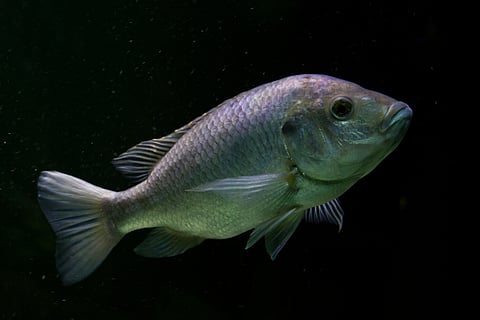

Mozambique tilapia (Oreochromis mossambicus).
Photo: Adobe Stock
Mozambique tilapia reared in saltwater RAS grew 15% faster than those in freshwater, according to a new study from the University of Hawaiʻi at Mānoa.
The research, carried out at the Tuahine Research and Education Center (TAREC), suggests advantages for producers looking to improve growth performance and efficiency in recirculating aquaculture systems (RAS).
In a university news release, the study’s lead author, Professor Andre Seale of the Department of Human Nutrition, Food and Animal Sciences, said the results confirm expectations but highlight important benefits. “Recirculating systems are being increasingly adopted… especially in inland areas or areas with less access to water or other resources,” he said.
"By demonstrating that Mozambique tilapia can thrive and grow more quickly in saltwater, this research opens the door to studies on sustainable aquaculture where changes in salinity can improve the health, production and nutritional value of fish used for food," the researchers said.
"Added to the lower environmental footprint of employing a recirculating system, where most of the water is recycled, another benefit of identifying conditions where fish grow faster is a shorter time to market," they added.
Aerial view of the Tuahine Research and Education Center (TAREC) in Hawaiʻi.
Photo: University of Hawaiʻi at Mānoa
TAREC was established in 2024 with two recirculating aquaculture systems designed to compare species performance across different salinities. The 8,600-square-foot facility in Mānoa supports collaborative projects with partners including NOAA and the University of Hawaiʻi Sea Grant College Program.
“Ultimately, through a versatile and integrated system design capable of providing animals with a range of environmental conditions, the main goal of TAREC is to provide a platform for integrated research, extension and education activities that address aquaculture industry needs and funding agency priorities while supporting workforce development,” Seale stated on the center's launch last year.
The Center’s work is intended to advance sustainable food production in Hawaiʻi and provide training opportunities for aquaculture researchers and practitioners, the University said.
